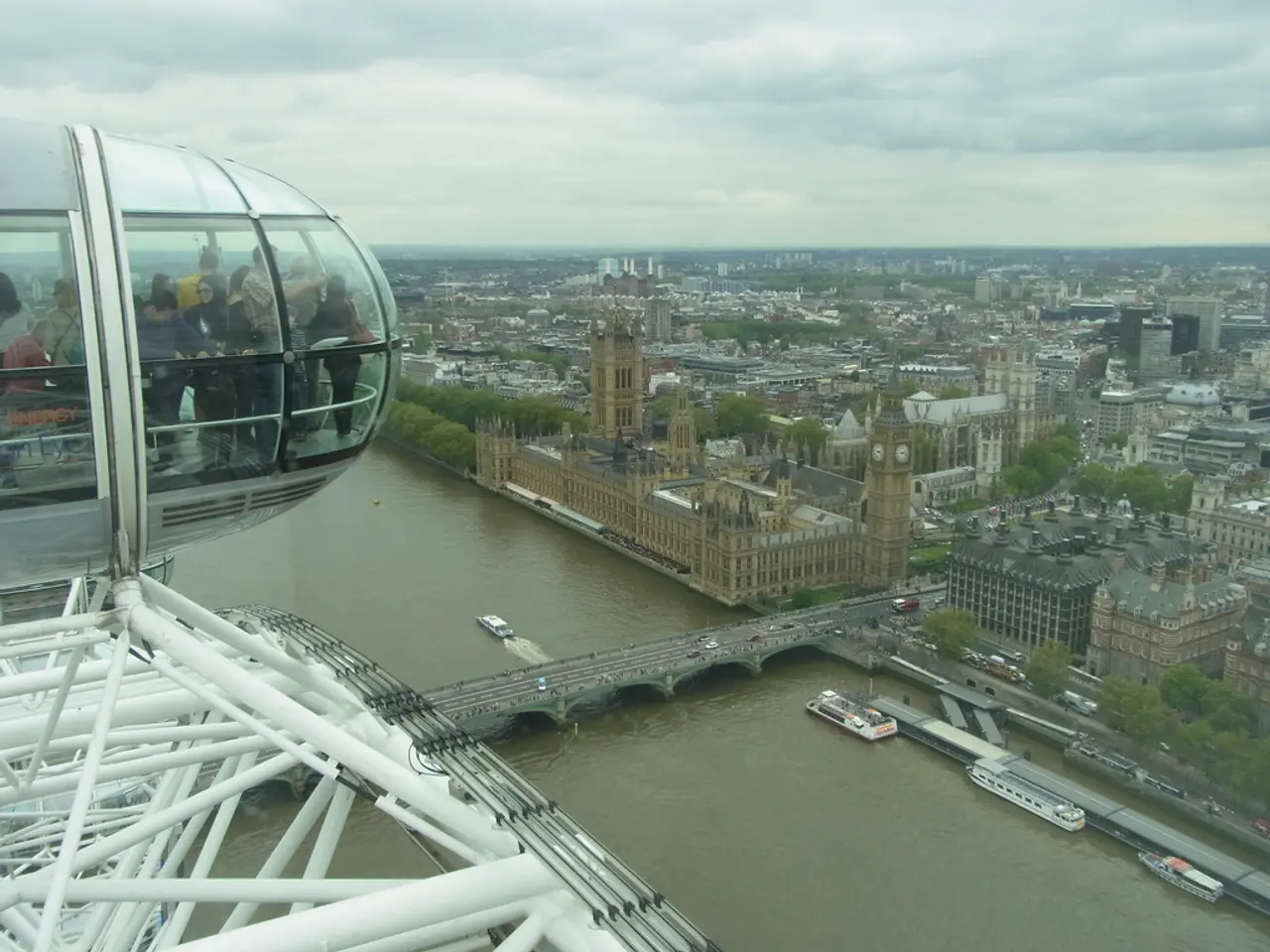Streamlining bureaucratic procedures requires reducing planning reform involvement, according to the ministers' stance.
The UK government's recent plan to remove Sport England, Theatres Trust, and The Gardens Trust (The Gardens Trust) from the list of statutory consultees in planning decisions has significant implications, particularly for environmental, cultural, and community-focused considerations in the planning process.
### Key Implications and Potential Effects:
1. **Reduction in Specialist Oversight and Input:** - As statutory consultees, these bodies have a formal role in reviewing and advising on planning applications that affect their respective areas of expertise—sports facilities, theatres and cultural venues, and historic gardens and landscapes. - Removing their statutory status means they will no longer have the automatic right to be consulted on relevant planning applications. This could lead to less input from experts dedicated to protecting sports infrastructure, cultural heritage, and historic gardens during decision-making.
2. **Impact on Protection of Heritage and Community Assets:** - The Gardens Trust, for example, advises on planning applications that affect nationally designated parks and gardens of special historic interest. Removing them as a statutory consultee may weaken protections for these historic landscapes by reducing expert scrutiny. - Similarly, the Theatres Trust advocates for the interests of theatres and performing arts venues, ensuring their preservation and sustainability in the face of development pressures. Its removal risks undermining the cultural sector’s voice in planning decisions. - Sport England plays a crucial role in safeguarding sports facilities and promoting community health through active lifestyles. Without statutory consultee status, proposed developments that affect sports facilities might face less rigorous review, potentially impacting community recreation opportunities.
3. **Streamlining and Speeding Up the Planning Process:** - The government’s broader objective with these reforms is to accelerate housing delivery and reduce bureaucracy by simplifying the planning system and narrowing the scope of statutory consultees to speed up decisions. - This reflects an intent to make the planning process more predictable and less restrictive, aiming to unlock faster development, especially for housing. - However, this comes with a trade-off between speed and comprehensive oversight, potentially leading to decisions that do not fully consider environmental, heritage, and community concerns.
4. **Potential Shift in Planning Priorities:** - The reforms may signal a policy shift prioritizing development and infrastructure growth over the preservation of certain cultural, environmental, and sporting assets. - It could also transfer some responsibility for consulting these bodies from a statutory duty to a discretionary one, possibly dependent on local authority priorities and capacities.
5. **Future Consultation and Guidance:** - The government has indicated intentions to consult on the impacts of removing such statutory consultee statuses, suggesting there will be opportunities to assess and potentially mitigate negative effects. - There may also be new or updated guidance for local authorities and remaining statutory consultees on how to engage with such bodies in a less formalized way.
### Summary
Removing Sport England, Theatres Trust, and The Gardens Trust from the statutory consultee list is likely to reduce expert scrutiny on planning applications impacting sport, cultural venues, and historic gardens. While this aims to streamline and speed up planning decisions to support housing and infrastructure development, it may also weaken protections for community, heritage, and environmental assets, shifting the balance of planning priorities towards development speed and efficiency rather than comprehensive specialist input.
This change is part of wider planning reforms intending to modernize and accelerate decision-making but has sparked concern about the long-term consequences for the quality and sustainability of the built and cultural environment in the UK.
- The removal of Sport England, Theatres Trust, and The Gardens Trust as statutory consultees could lead to reduced investing in real-estate projects that prioritize community sports, cultural preservation, and historic gardens, as these bodies' expertise will no longer be consulted in the planning process.
- With the UK government's new policy-and-legislation on housing development, finance might be directed towards large-scale projects at the expense of the general-news areas such as sports facilities, theaters, and historic gardens, as less expert oversight may speed up the construction process but potentially compromise their preservation.
- In the wake of changes in the statutory consultees list, local authorities will need to rely on voluntary rather than mandatory consultation with organizations like the Theatres Trust, Sport England, and The Gardens Trust when making decisions about real-estate development, which could eventually impact the future of housing finance and investing in historical or culturally significant real-estate projects.




